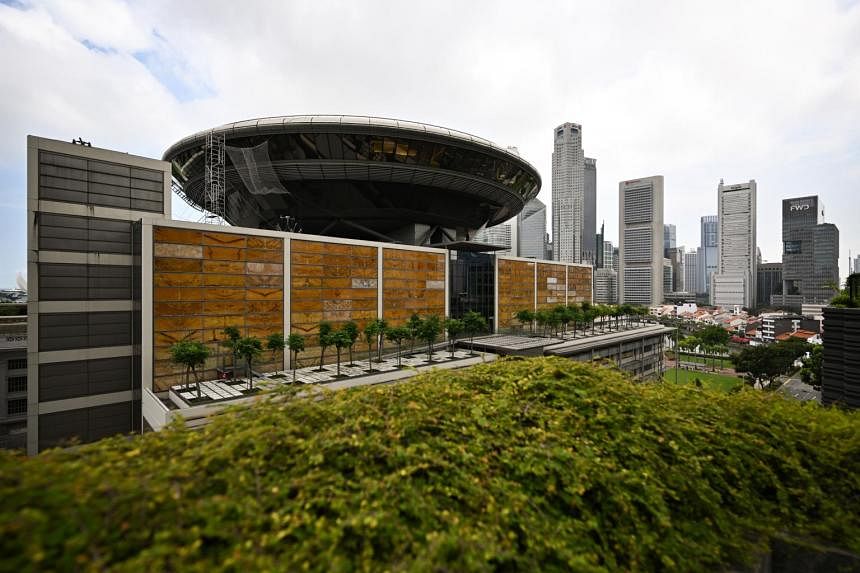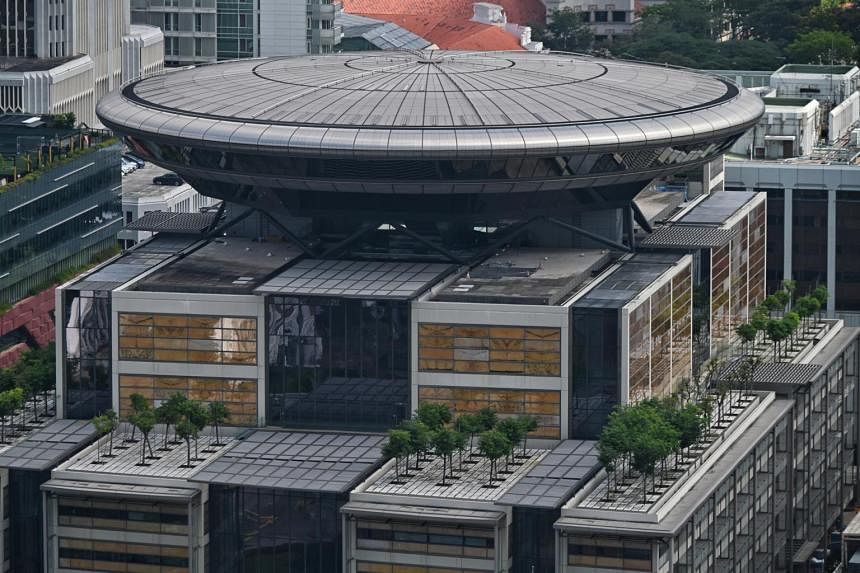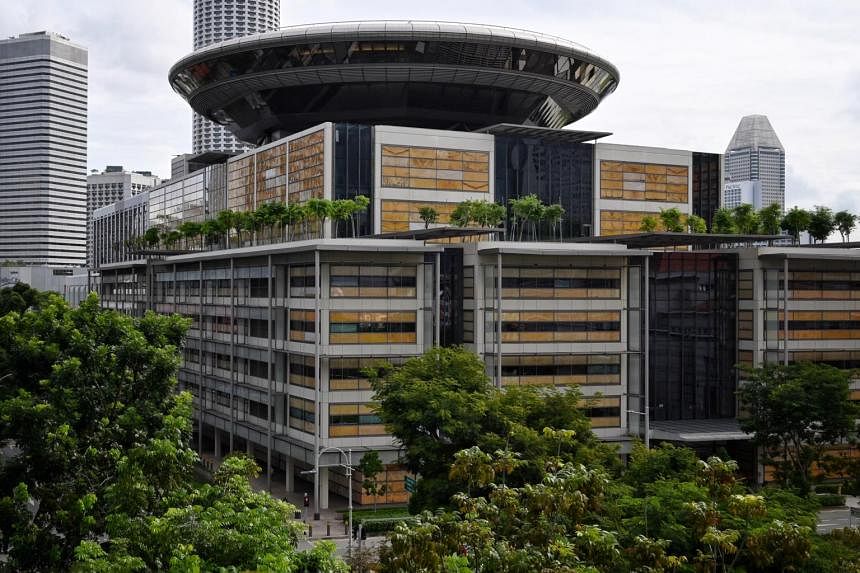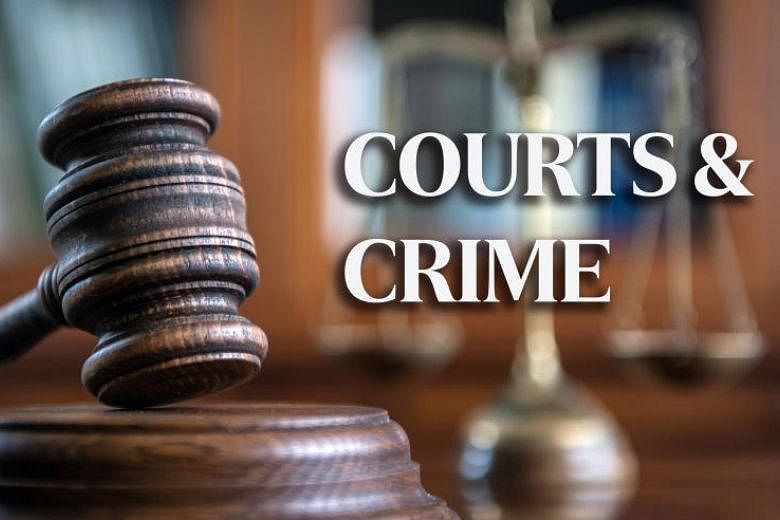- Joined
- Jul 25, 2008
- Messages
- 13,555
- Points
- 113
This is a cover-up.
Who are these lawyers that the government and judiciary are protecting?

The six had mostly trained in big and renowned firms. PHOTO ILLUSTRATION: PEXELS

Selina Lum
Senior Law Correspondent
APR 18, 2022
SINGAPORE - Six trainee lawyers here had their applications to be called to the Bar adjourned after they cheated in the professional Bar examination in 2020 - including on a paper on ethics and professional responsibility.
In the spirit of "second chances", a High Court judge directed that the six not be named in the hope that they will not be prejudiced in the long run.
"In a profession in which every member must be like Caesar's wife - beyond reproach - dishonesty is a big problem. But it would also be harsh to have one's professional career ended before it has even begun," said Justice Choo Han Teck.
The six had mostly trained in big and renowned firms. Five of them are currently working as legal executives.
Five, who had shared answers in six papers through WhatsApp, had to retake the papers after they were found out.
The remaining one, who colluded with another person taking the exam and cheated in three of the papers, had to retake the entire preparatory course for what is known as Part B of the Bar exam.
They have all since passed the required exams, but their applications to be called to the Bar have been postponed - six months for the five and a year for the other.
Law graduates have to go through a six-month course and pass the Bar exam, known as Part B, as well as complete a six-month training contract with a law firm. They then qualify to be called to the Bar, which means they can practise as lawyers.
Graduates from approved foreign universities also have to take another exam known as Part A.
Applications have to be accepted by the Attorney-General (AG), the Singapore Institute of Legal Education (Sile) and the Law Society.
Twenty-six applicants to the Bar, including the six, had their Bar admissions hearings before Justice Choo last Wednesday (April 13).
The AG objected to the six applications because they had cheated in the Bar exam.
On Monday, the judge issued the grounds of decision to explain why he had agreed to a proposal by the AG for the applications to be adjourned.
Justice Choo said: "The AG was of the view that the applicants lacked honesty and integrity, and should not be admitted to the Bar, at least not for a while, since it is questionable whether they can presently swear the oath on admission which requires them to declare that they will 'truly and honestly conduct (themselves) in the practice of an advocate and solicitor according to the best of knowledge and ability and according to law'."
The one who was required to retake the entire course had denied any wrongdoing, unlike the five who admitted what they had done as soon as the institute began its inquiry.
She filed an affidavit apologising for her conduct only on April 11, two days before the admission hearing.
She explained that her answers were the same as the other person because they studied together and shared study notes.
The Sile, which conducts the exam and the preparatory course leading to the exam, rejected her explanation because her answers in the three papers were not just similar, but contained the same pattern and errors.
"They were not just similar but the same - warts and all. The Sile, however, gave her the benefit of the doubt in three other papers," said Justice Choo.
She was required to retake the entire Part B course, which comprises seven compulsory subjects, such as civil litigation practice, criminal litigation practice, family law practice and ethics and professional responsibility.
There are also electives such as mediation advocacy, the law and practice of arbitration, and wills, probate and administration practice. According to the Sile website, the Part B course and exam fees for 2021 were $6,420 for Singaporeans, $7,490 for permanent residents and $9,095 for foreign candidates.
Justice Choo said this incident has raised many questions about whether there is a culture of cheating.
"When so many applicants cheated in a professional qualifying examination in so many papers, including one for 'ethics and professional responsibility', then something is wrong somewhere," he said.
"Does the mode of present-day examinations make it more conducive for cheating? Have the examinees cheated because the modes of examinations in the law schools are similarly conducive for cheating?
"Furthermore, when a person cheats in a course meant to instil ethics and professional conduct, it raises the question, how is it that they had learnt so poorly from the course?"
Justice Choo noted that a lawyer who has acted dishonestly will be disciplined according to the process under the Legal Profession Act.
There is, however, no disciplinary process for a qualifying applicant to the Bar, except that the court hearing the application may refuse to admit the applicant.
Mr Jeyendran Jeyapal, representing the AG, had proposed the adjournment of the six's applications - not as a punishment, but for the six to "reflect on the error of their ways".
Justice Choo said: "He would be right because this is not a disciplinary proceeding before me."
Mr Christopher Daniel, counsel for the Law Society, and Ms Dew Wong, counsel for the institute, agreed with Mr Jeyendran, as did the six applicants, added the judge.
Justice Choo said: "(Judges) loath to shut the door on a wrongdoer with no prospects of redemption. But they also have a duty to prevent a repeat of the wrong, and to do so without breaking young backs in the process."
Justice Choo said Mr Jeyendran's proposal was fair and appeared to be the most viable option in the circumstances.
The judge said he was redacting the names of the applicants in the hope that they will not be prejudiced in the long run.
He directed that the court file be sealed, which means third parties cannot get documents filed in respect of the admissions.
"Second chances are for those who seize them. If ever they were to plead for a third, I wish them good luck."
Justice Choo warned that future cases may not be redacted, and the applications may be adjourned indefinitely.
Who are these lawyers that the government and judiciary are protecting?
Six trainee lawyers who cheated in 2020 Bar exam have their admissions to the profession delayed

The six had mostly trained in big and renowned firms. PHOTO ILLUSTRATION: PEXELS

Selina Lum
Senior Law Correspondent
APR 18, 2022
SINGAPORE - Six trainee lawyers here had their applications to be called to the Bar adjourned after they cheated in the professional Bar examination in 2020 - including on a paper on ethics and professional responsibility.
In the spirit of "second chances", a High Court judge directed that the six not be named in the hope that they will not be prejudiced in the long run.
"In a profession in which every member must be like Caesar's wife - beyond reproach - dishonesty is a big problem. But it would also be harsh to have one's professional career ended before it has even begun," said Justice Choo Han Teck.
The six had mostly trained in big and renowned firms. Five of them are currently working as legal executives.
Five, who had shared answers in six papers through WhatsApp, had to retake the papers after they were found out.
The remaining one, who colluded with another person taking the exam and cheated in three of the papers, had to retake the entire preparatory course for what is known as Part B of the Bar exam.
They have all since passed the required exams, but their applications to be called to the Bar have been postponed - six months for the five and a year for the other.
Law graduates have to go through a six-month course and pass the Bar exam, known as Part B, as well as complete a six-month training contract with a law firm. They then qualify to be called to the Bar, which means they can practise as lawyers.
Graduates from approved foreign universities also have to take another exam known as Part A.
Applications have to be accepted by the Attorney-General (AG), the Singapore Institute of Legal Education (Sile) and the Law Society.
Twenty-six applicants to the Bar, including the six, had their Bar admissions hearings before Justice Choo last Wednesday (April 13).
The AG objected to the six applications because they had cheated in the Bar exam.
On Monday, the judge issued the grounds of decision to explain why he had agreed to a proposal by the AG for the applications to be adjourned.
Justice Choo said: "The AG was of the view that the applicants lacked honesty and integrity, and should not be admitted to the Bar, at least not for a while, since it is questionable whether they can presently swear the oath on admission which requires them to declare that they will 'truly and honestly conduct (themselves) in the practice of an advocate and solicitor according to the best of knowledge and ability and according to law'."
The one who was required to retake the entire course had denied any wrongdoing, unlike the five who admitted what they had done as soon as the institute began its inquiry.
She filed an affidavit apologising for her conduct only on April 11, two days before the admission hearing.
She explained that her answers were the same as the other person because they studied together and shared study notes.
The Sile, which conducts the exam and the preparatory course leading to the exam, rejected her explanation because her answers in the three papers were not just similar, but contained the same pattern and errors.
"They were not just similar but the same - warts and all. The Sile, however, gave her the benefit of the doubt in three other papers," said Justice Choo.
She was required to retake the entire Part B course, which comprises seven compulsory subjects, such as civil litigation practice, criminal litigation practice, family law practice and ethics and professional responsibility.
There are also electives such as mediation advocacy, the law and practice of arbitration, and wills, probate and administration practice. According to the Sile website, the Part B course and exam fees for 2021 were $6,420 for Singaporeans, $7,490 for permanent residents and $9,095 for foreign candidates.
Justice Choo said this incident has raised many questions about whether there is a culture of cheating.
"When so many applicants cheated in a professional qualifying examination in so many papers, including one for 'ethics and professional responsibility', then something is wrong somewhere," he said.
"Does the mode of present-day examinations make it more conducive for cheating? Have the examinees cheated because the modes of examinations in the law schools are similarly conducive for cheating?
"Furthermore, when a person cheats in a course meant to instil ethics and professional conduct, it raises the question, how is it that they had learnt so poorly from the course?"
Justice Choo noted that a lawyer who has acted dishonestly will be disciplined according to the process under the Legal Profession Act.
There is, however, no disciplinary process for a qualifying applicant to the Bar, except that the court hearing the application may refuse to admit the applicant.
Mr Jeyendran Jeyapal, representing the AG, had proposed the adjournment of the six's applications - not as a punishment, but for the six to "reflect on the error of their ways".
Justice Choo said: "He would be right because this is not a disciplinary proceeding before me."
Mr Christopher Daniel, counsel for the Law Society, and Ms Dew Wong, counsel for the institute, agreed with Mr Jeyendran, as did the six applicants, added the judge.
Justice Choo said: "(Judges) loath to shut the door on a wrongdoer with no prospects of redemption. But they also have a duty to prevent a repeat of the wrong, and to do so without breaking young backs in the process."
Justice Choo said Mr Jeyendran's proposal was fair and appeared to be the most viable option in the circumstances.
The judge said he was redacting the names of the applicants in the hope that they will not be prejudiced in the long run.
He directed that the court file be sealed, which means third parties cannot get documents filed in respect of the admissions.
"Second chances are for those who seize them. If ever they were to plead for a third, I wish them good luck."
Justice Choo warned that future cases may not be redacted, and the applications may be adjourned indefinitely.










